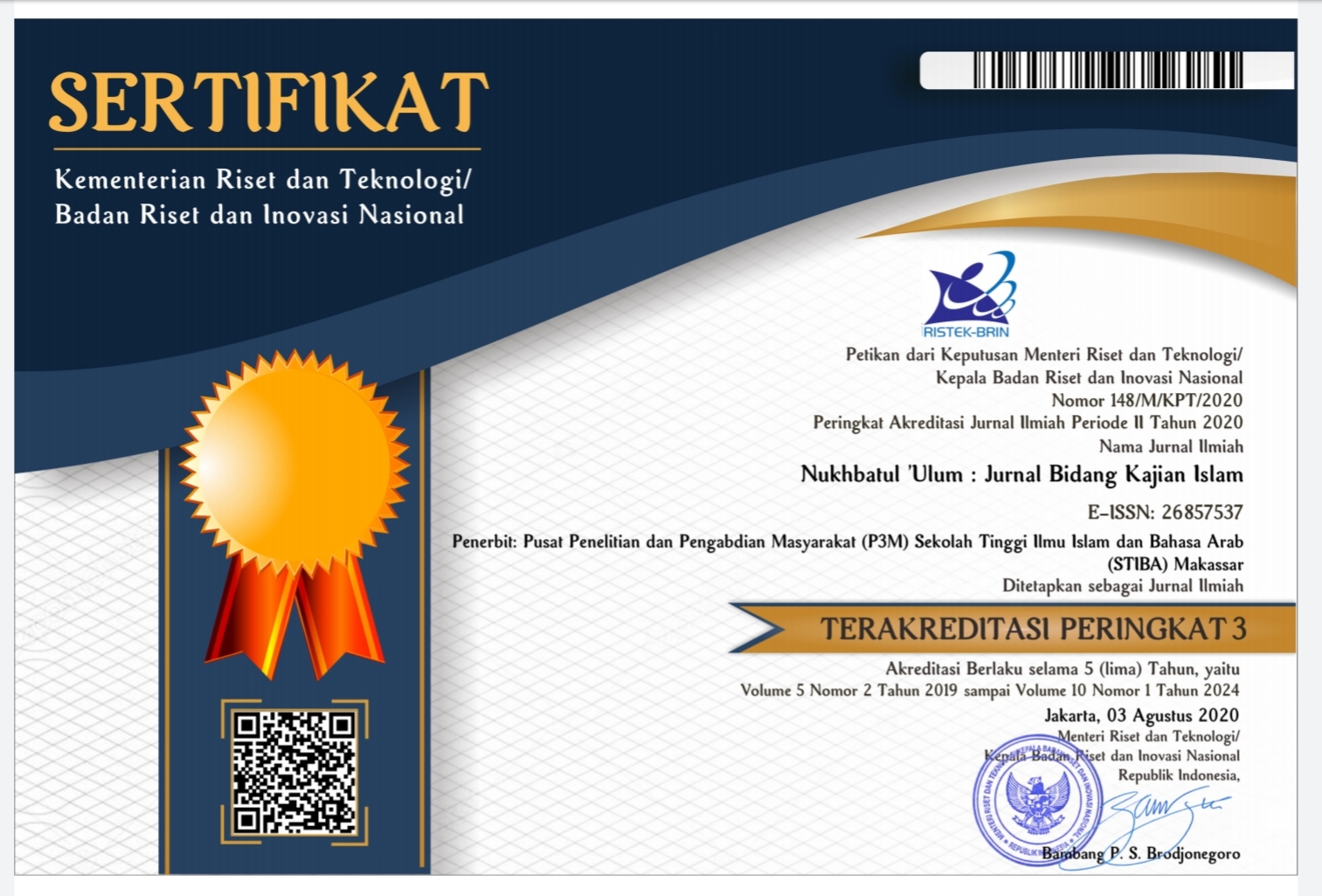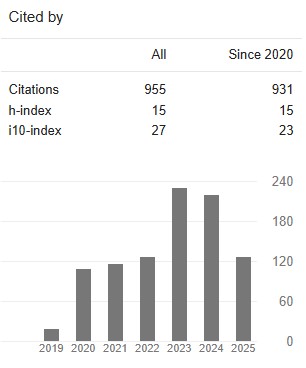أساليب القرآن للفراهي والموازنة بينه وبين البرهان في علوم القرآن للزركشي
A Comparative Study Between Asālib al-Qurān by ‘Abd al-Ḥamīd al-Farahī and al-Burhān fī ‘Ulūm al-Qurān by al-Zarkashī
DOI:
https://doi.org/10.36701/nukhbah.v6i2.157Keywords:
Stylistic, Comparative, Coherence, al-Farāhī, al-ZarkashīAbstract
This study focused on the techniques of the Qur’an, which is particularly selected due to the vital importance of making use of the linguistic techniques and employing them in studying the linguistic techniques of the Qur’an which have convinced the majority of people to accept the principles of this religion, Islam, through their distinctive features which call attention to their research. Besides, there is a lack of studies which investigated and explained the formation and structures of the techniques of the Qur’an, the techniques we are in dire need of to address others. It is noticed that the previous Qur’anic studies have been more concerned with focusing many topics related to the sciences of the Qur'an but no study has examined the linguistic structures of the Qur’an. Much research has studied the techniques of the Qur’an; for instances some researchers investigated this topic independently such as al-Farahīin his book Asālib al-Qurān while others, like al-Zarkashī, just discussed it in part of his book, al-Burhān Fī‘Ulūm al-Qurān. Therefore, the present study investigates the approaches used by al-Zarkshahīand al-Farahīin studying the techniques of the Qur’an in their books related to the sciences of the Qur’an. To achieve the objectives of this study, the books related to the topic are collected and examined. Moreover, the approaches employed by al-Zarkashīand al-Farahīare analyzed and then the useful techniques which could be utilized for understanding the Qur’an are also identified. The findings of the study reveal that al-Farahīlinks the techniques of the Qur’an with the coherence of the Qur’an, which represents the objective unity of the whole Qur’an. It is also shown that al-Farahībelieves that those who do not understand the techniques of the Qur’an have missed the understanding of and thereflection on the Qur’an. However, it is revealed that al-Zarkashīmakes the linguistic techniques independent from the objective unity of the Qur’an.
Downloads
References
Al-‘Āmirī, A. A. (2004). Dīwān labīd ibn Rabī‘ah al-‘Āmirī. Beirut: Dar al-Ma‘rifah.
Al-Farāhī, A. H. (1992). Majmū‘ah Tafāsīr Farāhī. Lahore, Pakistan: Paran Foundation.
Al-Farāhī, A. H. (1994). Im‘ān fi Aqsām al-Qur’ān. India: al-Da’irah al-Hamidiyah.
Al-Farāhī, A. H. (2011). Asālīb al-Qur’ān. India: al-Da’irah al-Hamidiyah.
Al-Iṣlāḥī, A. (2009). Muqaddimah Tadabbur al-Qur’ān. Lahore, Pakistan: Paran Foundation.
Al-Iṣlāḥī, S. (2001). Rā’id al-Fikr al-Iṣlāḥī. New Delhi, India: Balagh Publication.
Al-Muznī, Z. A. (1988). Dīwān Zahīr ibn Abī Salmī. Beirut: Dar al-Kutub al-‘Ilmiyyah.
Al-Zarkashī, B. M. (1957). Al-Burhān Fī ‘Ulūm al-Qur’ān. Beirut: Dar al-Ma‘rifah.
Al-Zirkilī, K. M. (2002). Al-A‘lām. Beirut: Dar al-‘Ilm li al-Malāyīn.


















